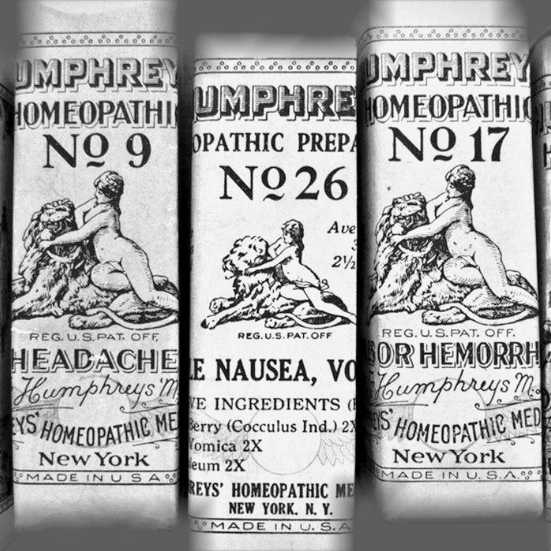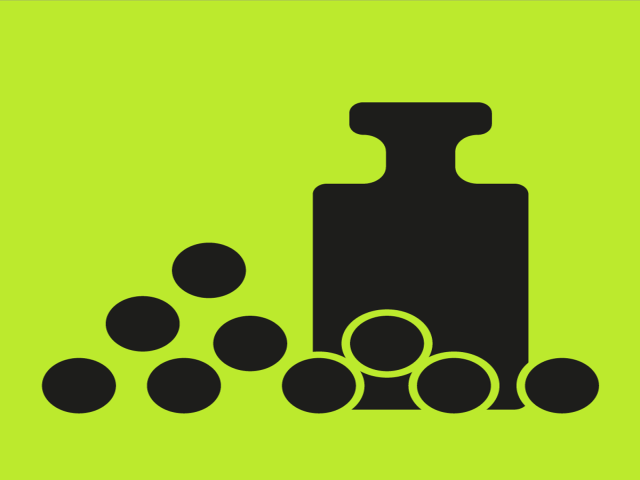
Homeopathy may lose its recognition as a medical specialty in Brazil, which it has enjoyed since 1980. Interview with O Estado de S. Paulo newspaperFirst Vice-President of the Federal Council of Medicine (CFM), Giancarlo Cavalcanti, stated that the analysis of the matter would be carried out by the Mixed Disciplinary Committee, set up by the CFM, the Brazilian Medical Association (AMB) and the Ministries of Health and Education, which since 2015 has been responsible for this type of decision. The initiative comes on the heels of clarification campaigns promoted by the Instituto Questão de Ciencia (IQC) and its president, Natalia Pasternak, about the lack of high-quality scientific evidence of the efficacy of the practice, which was established by the German physician Samuel Hahnemann at the end of the eighteenth century.
The CFM recognizes this discipline, however, as a regulatory body, it is open to new discussions. If the evidence is called into question, nothing prevents a new analysis. […] “I will have my team collect this evidence (about the ineffectiveness of homeopathy) and I will take it to counselors for consideration,” Cavalcanti told Estadão.
Pasternak has been critical of homeopathy’s status as a medical specialty in Brazil – one of the few countries in the world to hold this position – since before the founding of the IQC in 2018. Opinion article in the newspaper Folha de S.Paulo In it, he drew attention to the implausibility of the principles of practice, such as the successive dilution of substances with which it is proposed to treat patients, in the light of modern science.
“Very common gay dilution is ‘C30’, which means 30 consecutive dilution, at the rate of one part of the active principle to 100 parts of the solvent. This means that a drop of the original material dissolves in 1000000000000000000000000000000000000000000000000000,000 points of reduced material (water, for example, between one molecule).
And so, at the end of 2019, one year after its inception, IQC launched the 10^23 campaign With the aim of clarifying and educating the public about the ineffectiveness of homeopathy. The term 10^23 is a reference to Avogadro’s number, and represents the degree of dilution beyond which no molecules of the putative active principle are found in the final product. Shortly thereafter, Pasternak and the institute were forced to redirect their efforts toward combating disinformation in the COVID-19 pandemic, leaving the campaign in the background.
This does not mean, however, that the battle has been abandoned. Also in 2020, IQC celebrated two years with Launching a “counter-dossier” on homeopathy. counter file Brings texts by professionals who analyze, comment, and refute key articles of the “Special Dossier” of the Technical Room at Krimsp that are supposed to scientifically support the practice of homeopathy.
A year later, with vaccination progressing and the epidemic subsiding, in November 2021 the IQC resumed the 10^23 campaign with the slogan “Homeopathy is made of nothing”. Enhanced by lessons learned as one of the Major leaders in the fight against denial and disinformation During the COVID-19 crisis, including with Pasternak’s participation in the CPI of the Pandemic in the SenateThe institute has refocused on one of its main goals, advocating for evidence-based public policy.
As Marcelo Yamashita, IQC’s Scientific Director, and Carlos Orci, its Communications Director, noted in announcing the initiative’s relaunch, “No idea, no matter how wrong, really ‘dies’ so long as there is a community invested in keeping it circulating,” which is “of course not the exclusive property of homeopathy: astrology, reiki, and many other examples.” According to them, the pandemic showed that “the legion of defenders of science is not small,” but left up in the air “how much of this consensus about the intrinsic value of empirical evidence and scientific method will survive when the time comes to point out the shortcomings of practices and doctrines of ancient traditions.”
A problem that became apparent in the Ministry of Health’s response to Estadão’s questions about its position regarding the lack of scientific evidence of the efficacy of homeopathy, given that it is offered in the Unified Health System (SUS) as part of the SUS’s National Policy on Integrative and Complementary Practices (PNPIC). Founded in 2006, the center has incorporated 29 of these pseudoscientific practices into the health system with services paid for from public funds, including, in addition to homeopathy, approaches such as naturopathy, chiropractic, and ozone therapy that not only lack evidence of efficacy but can be dangerous to patients.
“The National Policy for Integrative and Complementary Practices in the SUS (PNPIC) is in the process of discussing and expanding the provision of services based on the best scientific evidence and therapeutic aim,” the ministry responded in a note to Estadão, adding that the current management of the portfolio “values science without delegitimizing traditional knowledge – especially for peoples that should be of value in Brazil, such as indigenous peoples.”
And this argument, in addition to being wrong in theory, happens to be wrong in practice: homeopathy, as we have seen, is of German origin; Flower remedies (also known as “Bach flower remedies”) are English; Reiki is Japanese and chiropractic is a bad idea Made in USA, invented by Daniel David (DD) Palmer, a Canadian charlatan living in the USA, at the end of the 19th century. Of the 29 practices of the National Intellectual Property Programme, only one can include the so-called “traditional knowledge” of the Brazilian people, and even then in an episodic way: phytotherapy, with its use of medicinal plants.
Nor are these practices “traditional” and ancient. Again, much of it was created from the 19th century onwards, whether it be a relic of a pre-scientific era, like homeopathy, or more recent developments—a list moving from aromatherapy to hydrotherapy—that seek to fit unspecified health care benefits, like the well-known “placebo effect.” Even the so-called “Traditional Chinese Medicine” is not quite “traditional”, but the brainchild of the Communist leader Mao Zedong, who gathered all Chinese historical remedies under this umbrella and invented “Barefoot Doctors” to practice TCM not because he believes in it, but because of the severe shortage of real doctors in China, and the country needs to at least appear as if it has a health care system.
Throughout the nearly five years of its existence now, IQC To be a source of reliable information about health and other relevant current issues, such as climate change, in a social environment where noise and misinformation are increasing. Meanwhile, this Scientific Question Journal, the institute’s digital publication, has produced dozens of articles and texts not only on homeopathy but also on PNPIC and other pseudoscientific or dubious initiatives. A possible revision of the position of homeopathy as a medical specialty in brazil is a sign that this work is being heard and understood by the population, society and governments of the country.
César Pima is a journalist and assistant editor for Questão de Ciência.

“Hardcore beer fanatic. Falls down a lot. Professional coffee fan. Music ninja.”







More Stories
The law allows children and adolescents to visit parents in the hospital.
Scientists pave the way for the emergence of a new element in the periodic table | World and Science
Can dengue cause hair loss? Expert explains how the disease affects hair